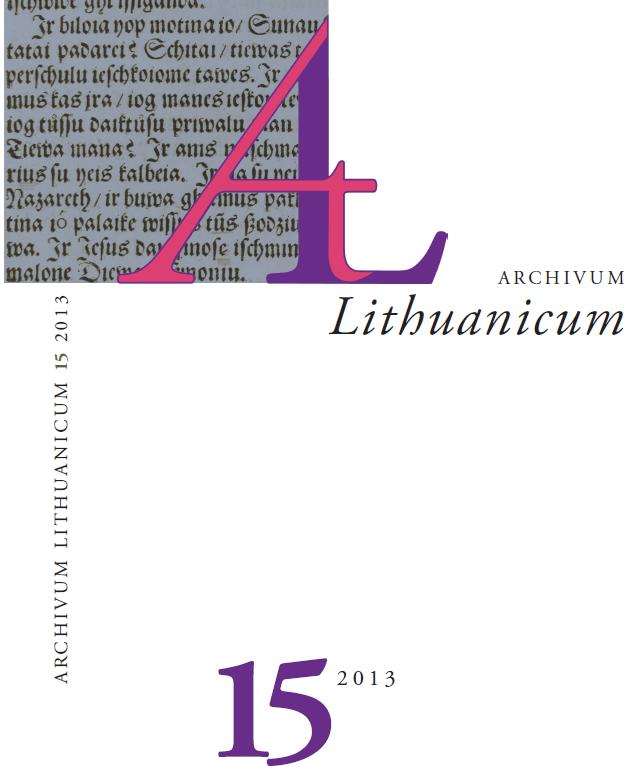Pasaulietinių dalykų – rusų kalbos, literatūros, tėvynės istorijos ir geografijos – mokymas dvasininkų rengimo įstaigose (XIX amžiaus antroji pusė)
Teaching secular disciplines in catholic seminaries: The Russian language and literature, the Homeland history and geography (The second half of the nineteenth century)
Author(s): Vilma ŽaltauskaitėSubject(s): Christian Theology and Religion, History of Education, Nationalism Studies, 19th Century, Sociology of Education
Published by: Lietuvių Kalbos Institutas
Keywords: Lithuanian language; Russian language; Homeland history; 19th century; secular subjects;
Summary/Abstract: The goal of this article was research of process and meaning of teaching secular subjects or subjects of general education (the Russian Language and Literature, the Homeland [Otechestvennaya] History and Geography) in Roman Catholic seminaries of the so-called Northwestern Province of Russia (NWP), in the context of the clerical policy by authorities in the second half of the nineteenth century. Also I attempted to measure the significance of those subjects taught for the sociocultural behavior of clergymen. In such a formulation of my goal I attempted to respond to the historiographical stance about modern Lithuanian nationalism as a project of secular authorities. Thus, I argue against the claim that Lithuanians were positively singled out in policies of the government in the so-called NWP at the end of the nineteenth century, and I do not agree that the measures by the authorities restricting Polish cultural expression in the same NWP were simultaneously rendering wider opportunities and spaces for the Lithuanian language and its users, as well as their political projects. The meaning of teaching secular subjects in seminaries is to be assessed in one way in the period after 1863–1864 insurrection till the end of 1860s, when the policy of sanctions against the Roman Catholic Church or of social relations regulated by the administrative circulars was obviously continued. At that time seminaries did not accept freshmen and teaching of secular subjects there did not proceed smoothly. But the assessment must be different in the 1870s, after the admission to the seminaries was renewed and the project of linguistic assimilation very clearly involved not only believers, but also clergymen (especially those that were prepared in the Vilnius Roman Catholic seminary, because their alumni had to work not only in their own, but also in the former Minsk bishopric, that did not include Lithuanian speaking areas).
Journal: Archivum Lithuanicum
- Issue Year: 2013
- Issue No: 15
- Page Range: 293-330
- Page Count: 38
- Language: Lithuanian

